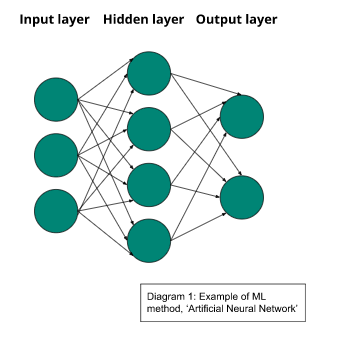
Smart injection & Machine Learning
Smart injection, use Machine Learning to reach your target audience immediately
The Field of Marketing is Changing
In today's highly competitive business landscape, companies strive to maximize their marketing efforts to reach the right audience and increase conversion rates. Traditional mass marketing approaches often fall short in delivering personalized experiences to customers. However, with the progression of machine learning algorithms, businesses now have powerful tools at their disposal to enhance targeted marketing strategies. By leveraging the potential of machine learning, companies can analyze vast amounts of data, identify patterns, and make smart decisions to optimize their marketing campaigns.What is targeted marketing?
Targeted marketing aims to tailor marketing efforts to specific groups of individuals who are more likely to respond positively to a particular product or service. It involves analyzing customers’ data, demographics, behavior, and preferences to create highly personalized marketing campaigns. By focusing resources on the most relevant audience, businesses can optimize their marketing spend and maximize their sales.How is Machine Learning Used for Targeted Marketing?
Machine Learning Introduction -Machine Learning (ML) algorithms are a major application of Artificial Intelligence (AI) nowadays. The supervised ML algorithms are being trained on a labeled sample data set, so that they can automatically find predictive patterns and make decisions when run with new input. The model’s predictive value is tested on a different set of labeled examples, “the test set”. There are many supervised ML algorithms based on different concepts, including neural networks, decision trees, and regression. ML methods are increasingly used in marketing, and in various other fields: computer speech, vision

recognition, email filtering, personalized medicine and even arts. Thanks to its highly accurate predictive abilities, machine learning algorithms can be used to suit each website viewer with a relevant ad.
Benefits of Machine Learning in Targeted Marketing
Predictive Analytics
Machine learning algorithms enable predictive analytics by using historical data and identifying patterns that help predict future customer behavior. This allows businesses to anticipate customer needs and preferences. Algorithms such as decision trees, random forests, or gradient boosting can predict customer purchase likelihood and product preferences, enabling marketers to proactively engage with customers with relevant offers and incentives.Recommender Systems
Recommender systems, powered by machine learning algorithms, play a vital role in targeted marketing. These algorithms analyze customer behavior, purchase history, and preferences to suggest products or services that are likely to appeal to individual customers. Collaborative filtering, content-based filtering, or hybrid recommender systems leverage machine learning techniques to provide personalized recommendations, driving customer engagement and increasing salesSentiment Analysis
By utilizing natural language processing (NLP) techniques, machine learning algorithms can analyze customer feedback, reviews, and social media posts to determine sentiment and opinions. Sentiment analysis algorithms enable businesses to understand customer attitudes, and gauge the success of marketing campaigns. This valuable insight helps in fine-tuning marketing strategies and crafting targeted messages that resonate with customersReal-Time Personalization
Machine learning algorithms enable real-time personalization by analyzing customer behavior and preferences in real-time. This allows businesses to deliver highly relevant and personalized experiences across various channels, such as websites, email marketing, or mobile apps. Real-time personalization algorithms leverage techniques like reinforcement learning or contextual bandits to optimize marketing interactions on the fly, ensuring that customers receive tailored offers that suit their exact and immediate needs, based on their recent searches.Machines vs. Human kind - Contextual Marketing for a safer future
Many users and marketers are worried about Machine Learning algorithms. One very noticeable worry is the privacy/legal issue. Users are disturbed that the algorithms use personal information and violate their privacy - while marketers are worried to make a legal mistake, violating users’ privacy. Contextual marketing is a respectful, unharmful solution to this problem. Unlike traditional forms of targeted advertising that rely on personal data, contextual marketing focuses on delivering relevant ads based on the context of the users’ current activity or content they are engaging with, without directly accessing or storing personal information. By analyzing the immediate context, such as the webpage content, search keywords or current weather, ML algorithms can generate tailored ads without compromising user privacy. The data used for contextual marketing is typically anonymized and does not require identifying individuals or collecting sensitive personal details. This approach ensures that users' privacy remains intact while still benefiting from relevant and personalized marketing experiences. Nevertheless, this method creates a beneficial environment for the users by decreasing the annoyance caused by irrelevant ads, as well as helping them find a relevant product or service they’ve been actively looking for.
With proper privacy protocols and regulations in place, contextual marketing using ML can strike a balance between delivering effective marketing campaigns and respecting users’ privacy.